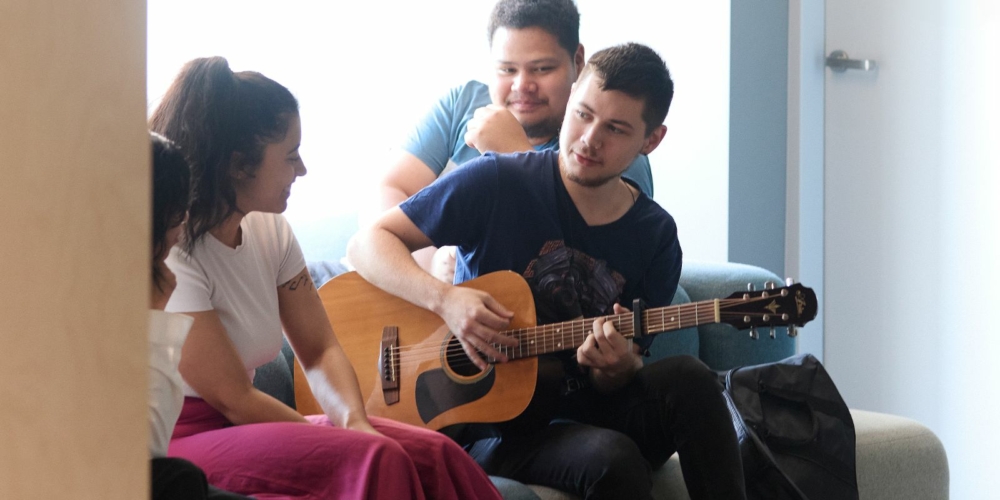“…tertiary-educated artists were more likely to have played a gig in the last week and were likely to earn more coin from their music industry work than those without that formal education.” – Triple J
In a Triple J’s recent Comprehensive Australian Artist Survey, we got a glimpse into the experiences (and struggles) of more than 1,000 local bands, artists, and music creators, revealing an industry in constant change in Australia.
The survey demonstrated the challenges artists face to make a living in music, get gigs and build their audience. But it also showed that artists with a degree fared better than those without formal qualifications. They were more likely to have played a gig recently, and to earn more from their music. If your goals is to play music and make a career out of it, a degree in music is definitely worthwhile.
The survey revealed that many musicians (83%) reported working outside the music industry to support a steady income. And of this group, 78% admitted to earning more from their non-music-related jobs than from their musical endeavours.
This combination of jobs is called a portfolio career, and it’s common across the artistic spheres. Full-time roles in music are definitely possible, and although many AIM alumni go on to careers dedicated to music, it’s common for musicians to enjoy a mix of jobs and roles. For example, performers may have gigs in evenings and weekends, mixed with others jobs during the week. AIM’s degree programs have been created to best support musicians to build long-lasting careers.

The survey indicated that despite the dominance of streaming platforms, live gigs remain the primary source of income for most musicians. Playing live music constitutes the bulk of their earnings, underscoring the significance of live performances in a landscape obsessed with digital consumption! However, hip-hop stands out as an exception, with streaming emerging as the top income source for artists in this genre.
In the digital age, social media platforms are huge for boosting an artist’s career. According to the survey, Instagram reigns supreme as the best platform for showcasing their work, with 69% of respondents recognising how crucial it is.
AIM’s music programs give you plenty of performance and gig practice and can also prepare you for the ‘business side’ of music. The Bachelor of Arts and Entertainment Management can set you up for a music business career and includes a compulsory industry placement in your final year. In our Bachelor of Music courses you can choose elective units to build your knowledge about the industry as well as your specific musical talent. For example, if you want to be a self-managed artist you can study our Bachelor of Music (Performance), which can include elective units on music publishing, artist management, social media management and entertainment law.
Despite the appeal of a career in music, 48% of respondents admitted to contemplating leaving the industry within the last few years. This sentiment reflects the struggles musicians face in an increasingly competitive and financially rocky field.
A degree in music will help you build your network. Your study mates during your first year can go on to be your future collaborators, employees or employers! These connections remain with you as your lifelong network, keeping your place in the music industry.

The survey showed the traditional practice of forming bands is losing appeal among younger artists, with solo endeavours gaining traction. This shift has been exacerbated by the challenges imposed by the COVID-19 pandemic where many artists, both emerging and established, have turned to solo work as a means of sustaining their creative output while adhering to social distancing measures.
Here at AIM, our campuses are live! There are countless opportunities to collaborate (it’s even baked into our courses) and band and collabs are formed every day. Individual performers thrive here too, with 1:1 mentoring from the start of your degree with one of our highly experienced academic staff.
Overall, Triple J’s findings offer very valuable insights into the multifaceted landscape of the music industry. We’re hopeful that this data sparks the beginning of an ongoing chat about how we can step up to support Aussie musicians throughout the music industry.
A good place to start is with music education – we know that a degree in music will helps artists’ adapt to the ever-evolving music industry and the changing needs and habits of audiences.
Students come to AIM because they love music and want to do it for the rest of their lives. AIM courses prepare students for just that.





